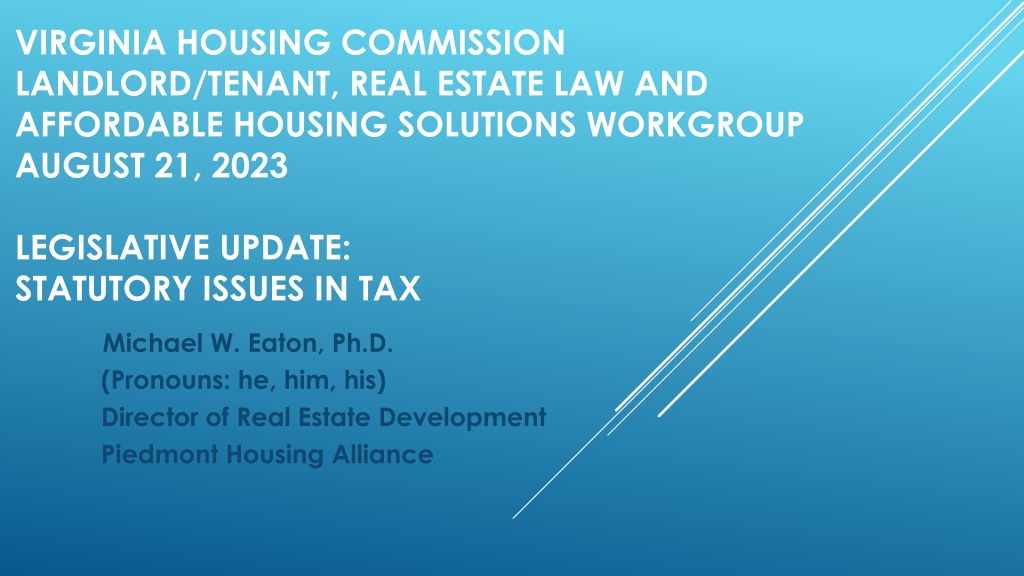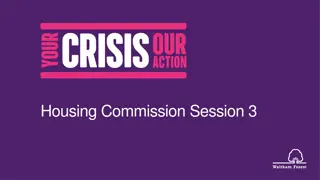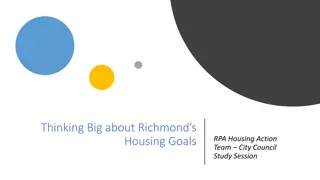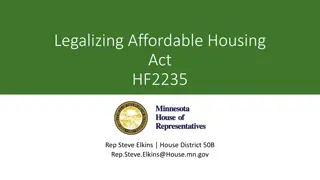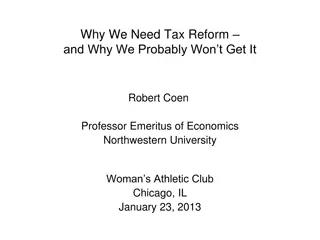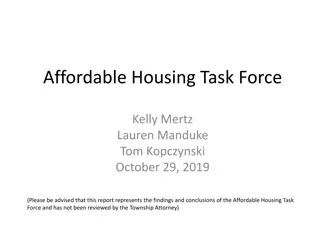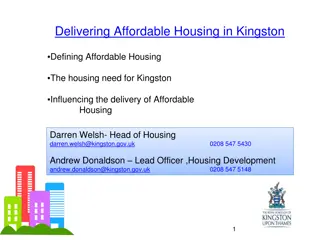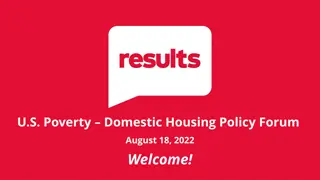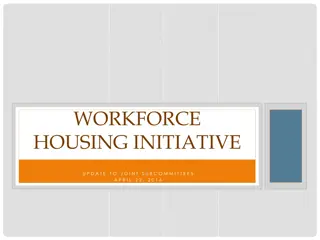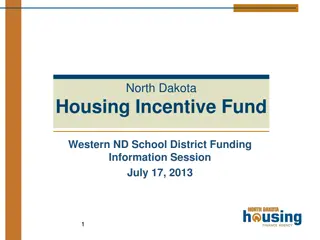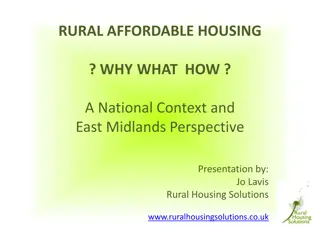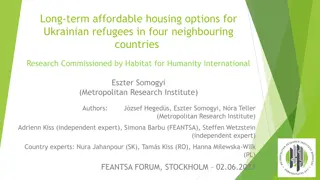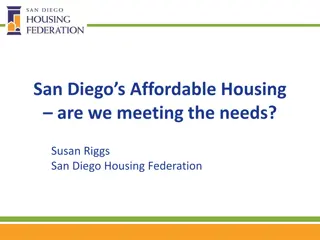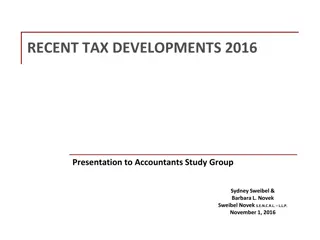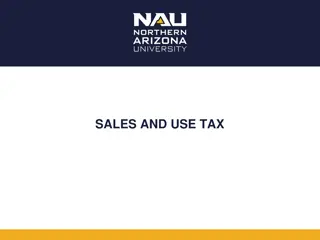Legislative Update: Statutory Issues in Tax for Affordable Housing Solutions
In 1997, the Texas Legislature enacted Tax Code Sec. 11.182, providing a 100% property tax exemption for affordable housing. The exemption was later expanded to include Low Income Housing Tax Credit (LIHTC) projects, with additional terms added in 2001. To qualify for this exemption, organizations must meet specific requirements and demonstrate their investment in community development services. The statute aims to promote affordable housing initiatives and support organizations dedicated to housing development.
Download Presentation

Please find below an Image/Link to download the presentation.
The content on the website is provided AS IS for your information and personal use only. It may not be sold, licensed, or shared on other websites without obtaining consent from the author. Download presentation by click this link. If you encounter any issues during the download, it is possible that the publisher has removed the file from their server.
E N D
Presentation Transcript
VIRGINIA HOUSING COMMISSION LANDLORD/TENANT, REAL ESTATE LAW AND AFFORDABLE HOUSING SOLUTIONS WORKGROUP AUGUST 21, 2023 LEGISLATIVE UPDATE: STATUTORY ISSUES IN TAX Michael W. Eaton, Ph.D. (Pronouns: he, him, his) Director of Real Estate Development Piedmont Housing Alliance
In 1997, the Texas Legislature enacted Tax Code Sec. 11.182, which created a 100% property tax exemption for affordable housing: The exemption extended to An organization is entitled to an exemption from taxation of improved or unimproved real property it owns if the organization: (1) is organized as a community housing development organization
The 100% exemption developed taxing jurisdiction opposition as well as industry support for explicit expansion to Low Income Housing Tax Credit (LIHTC) projects. As a result, the statute was modified during the legislative session in in 2001 to add 11.182(e), which provide additional terms including 4% and 9% LIHTC projects.
*(e) In addition to meeting the applicable requirements of Subsections (b) and (c), to receive an exemption under Subsection (b) for improved real property that includes a housing project constructed after December 31, 2001, and financed with qualified 501(c)(3) bonds issued under Section 145 of the Internal Revenue Code of 1986, tax-exempt private activity bonds subject to volume cap, or low-income housing tax credits, the organization must: (1) control 100 percent of the interest in the general partner if the project is owned by a limited partnership; (2) comply with all rules of and laws administered by the Texas Department of Housing and Community Affairs applicable to community housing development organizations; and (3) submit annually to the Texas Department of Housing and Community Affairs and to the governing body of each taxing unit for which the project receives an exemption for the housing project evidence demonstrating that the organization spent an amount equal to at least 90 percent of the project's cash flow in the preceding fiscal year as determined by the audit required by Subsection (g), for eligible persons in the county in which the property is located,. on social, educational, or economic development services, capital improvement projects, or rent reduction (f) An organization entitled to an exemption under Subsection (b) is also entitled to an exemption from taxation of any building or tangible personal property the organization owns and uses in the administration of its acquisition, building, repair, sale, or rental of property. To qualify for an exemption under this subsection, property must be used exclusively by the organization, except that another person may use the property for activities incidental to the organization's use that benefit the beneficiaries of the organization.
Many cities and school districts opposed continuation of the property tax exemption for affordable housing because of perceived revenue losses. As a result of a strong push to eliminate the exemption in 2003, I drafted a compromise statute, which was ultimate adopted as Tax Code Sec. 11.1825
The successor statute retains the affordable housing property tax exemption, but limits it to 50% of appraised value, and placed additional limitations on the projects which could qualify: 1. The non-profit must have 3 year history in the state, with at least two low-income board members 2. At least 50% of the project must be leased to people of 60% AMI or less 3. Project must charge tax credit level rents 4. Replacement reserves must be maintained 5. Exemption must be explicitly approved by government action in cities larger than 1.8 million 6. The chief appraiser must use the income method of valuation in determining the appraised value and use a published capitalization rate in determining value.
